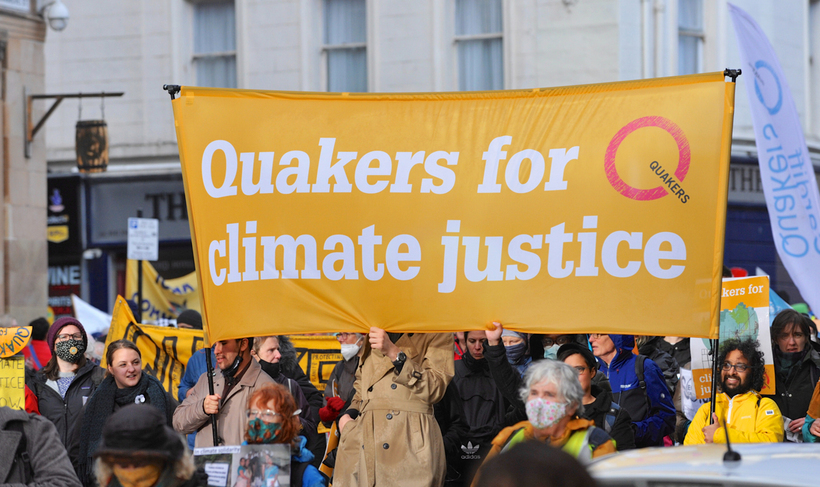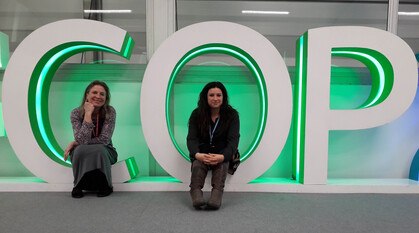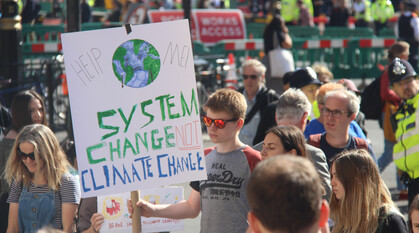Join the climate justice year of learning
Paul Parker invites people to participate in a year of learning and spiritual reflection on climate justice.

It's official. The UN Secretary-General, António Guterres, has said the latest climate change report means it's "code red for humanity". That doesn't feel like news to me, nor to the many Quakers and others who work to raise awareness and act to reduce the impact of climate change. As long ago as 2011, Quakers set out to become a low-carbon, sustainable community. And in 2021, Yearly Meeting made a commitment to climate justice.
What does this commitment mean? Why is it not just about sustainability any more? And what links our commitment to climate justice with our work on becoming an anti-racist church, another commitment made at Yearly Meeting in 2021? How does this connect with this year's decision to make "meaningful reparations" for the harms of the transatlantic slave trade, colonialism and economic exploitation?
I, for one, have a lot to learn before I can confidently answer these questions. Fortunately, help is at hand.
A year of learning
In July, Quakers in Britain and Woodbrooke, the Quaker learning and research organisation, are partnering to launch a 'year of learning and spiritual reflection' about climate justice. The year will be designed to support people to develop a thorough understanding of climate justice as part of a spiritual community, including the historical context, practical examples and how a justice-based approach differs from other approaches to climate action.
There will be two elements to the project – freely available resources and a pay-as-led online course. If you've ever wondered about what climate justice really means or how to practise it, this year and all the resources we are creating are for you.
Over the year we will explore the following areas:
- What is climate justice?
- Loss and damage: exploring historical responsibility and reparations
- Climate justice and the new economy
- What happens if we don't focus on justice?
- Living in right relationship with the Earth
- How do we act in solidarity and friendship across social justice movements?
Banishing climate despair
I'd like to say that I'm looking forward to it. But if I'm honest, I have to say that I'm not, really. I'm expecting to be discomfited and challenged. But I'm also expecting to be galvanised to action, and equipped to take the work forward.
For me at least, action is a way of building hope, and banishing the climate despair so many of us feel. I want to be able to say I tried my hardest to understand, and I took whatever action I could.
Learn, discuss, reflect
I hope you too will get involved. You can read more about the project on our website and sign up for the online course at any time throughout the year. You can make use of the resources that we share on our website to learn, discuss and reflect with others in a group.
If you don't have time to join the online course but want to follow along, we'll be inviting participants to share their reflections through blogs and videos throughout the year. These will be available on our website and via Quakers in Britain and Woodbrooke social media channels.


